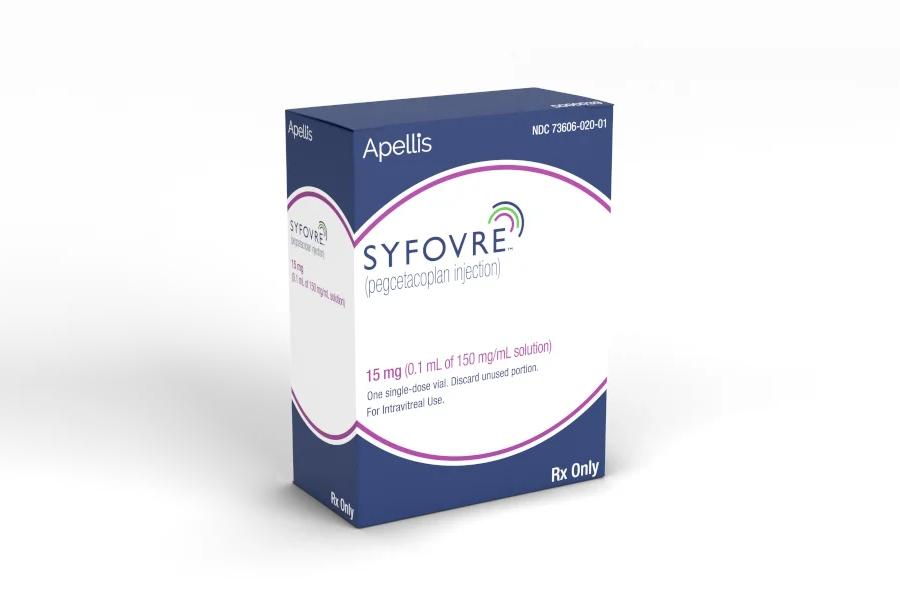Apellis slides on side effect reports with new eye drug

Apellis' share price came under pressure today after it revealed new details about a rare but serious side effect with its recently-approved Syfovre therapy for eye disease geographic atrophy (GA).
New data reported at the American Society of Retina Specialists (ASRS) meeting describes seven cases of retinal vasculitis since Syfovre (pegcetacoplan) was approved by the FDA in February, becoming the first drug to treat GA, a sight-robbing condition that accompanies age-related macular degeneration (AMD) and is a leading cause of blindness.
Four of the cases were 'occlusive' – in other words sufficiently severe to cause blocked blood flow in the retina – which poses its own risk of sight loss. Apellis' stock was down around 20% at the time of writing.
Apellis has launched an investigation into the side effect and said it may have identified one additional case, although this has not yet been confirmed. It also said there was no indication that "drug product or manufacturing issues" were responsible for the side effects, and pointed out that no cases of retinal vasculitis were seen with 23,000 injections of the drug in clinical trials.
The company's chief executive Cedric Francois said that "patient safety is our top priority, and we are continuing our ongoing review with external experts," noting that all safety events have been reported to the FDA. One line of inquiry is whether the drug's mechanism of C3 inhibition may be causing the issue in a small number of patients.
The side effect issue has been highlighted as Apellis is in the initial launch phase with Syfovre, with 68,000 vials of the new drug distributed in July and second-quarter sales coming in at just over $67 million. It also comes as marketing applications for the drug are under review in the EU, the UK, Canada, Australia and Switzerland.
The company acknowledged that the side effect issue is likely to have an impact on the take-up of the drug, noting that around a third of retina specialists that it surveyed after the cases of retinitis vasculitis emerged said they would pause use until more information is available.
Another third would continue to use the drug for currently treated and new patients, while the remaining third would continue treating patients with the drug but not use it in new patients for now.
The company also reported some new efficacy data for the drug from the phase 3 GALE trial, showing that GA lesion growth was reduced by 45% compared to placebo between 24 and 30 months of follow-up, supporting the durability of the drug.
Analysts have previously suggested that Syfovre could eventually become a multi-billion-dollar blockbuster, with Jefferies previously estimating peak sales of $6 billion.













